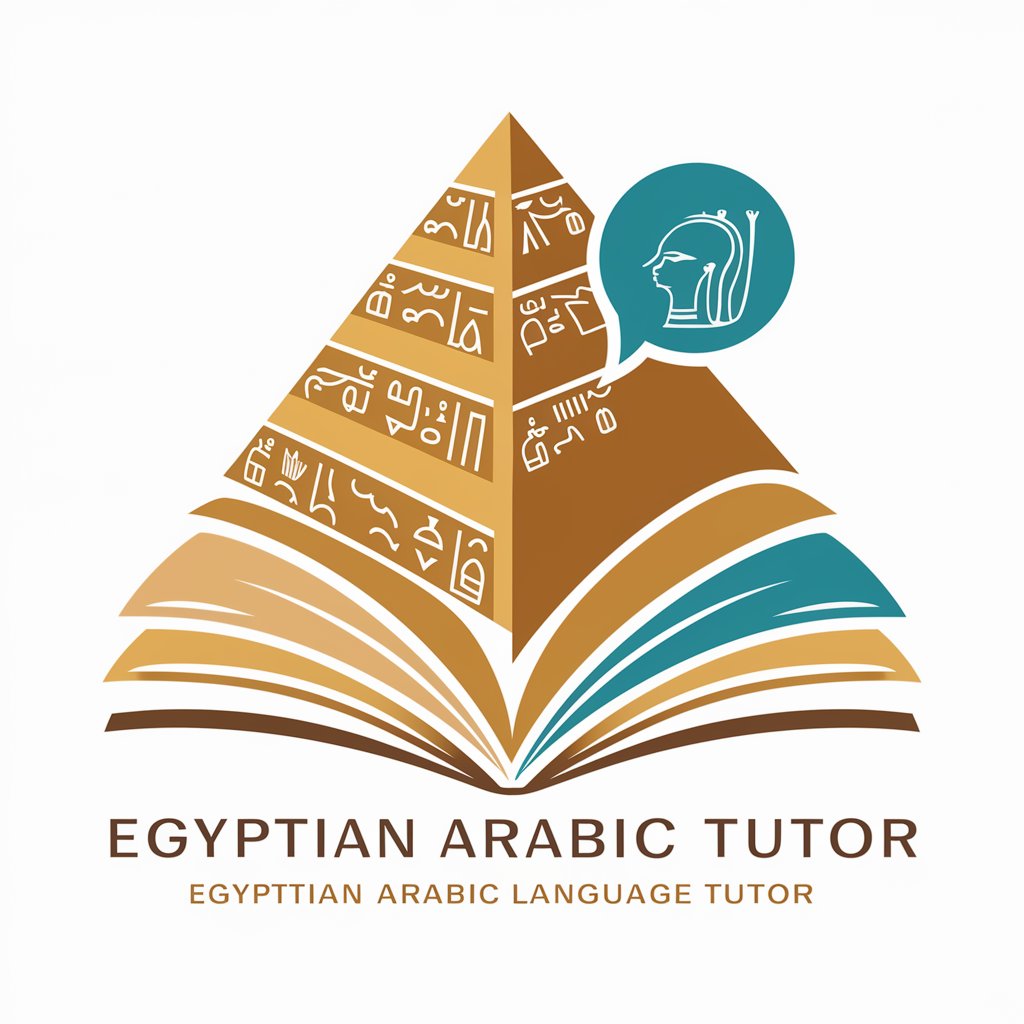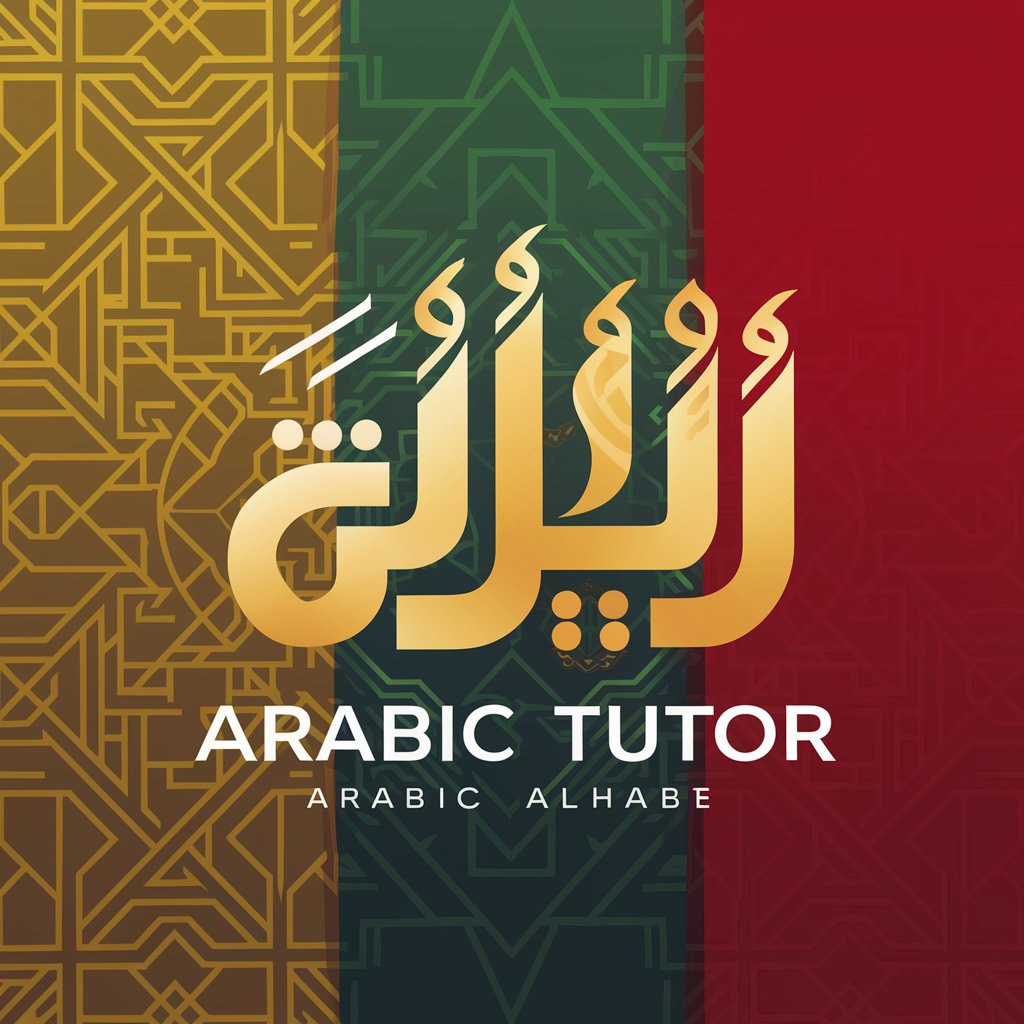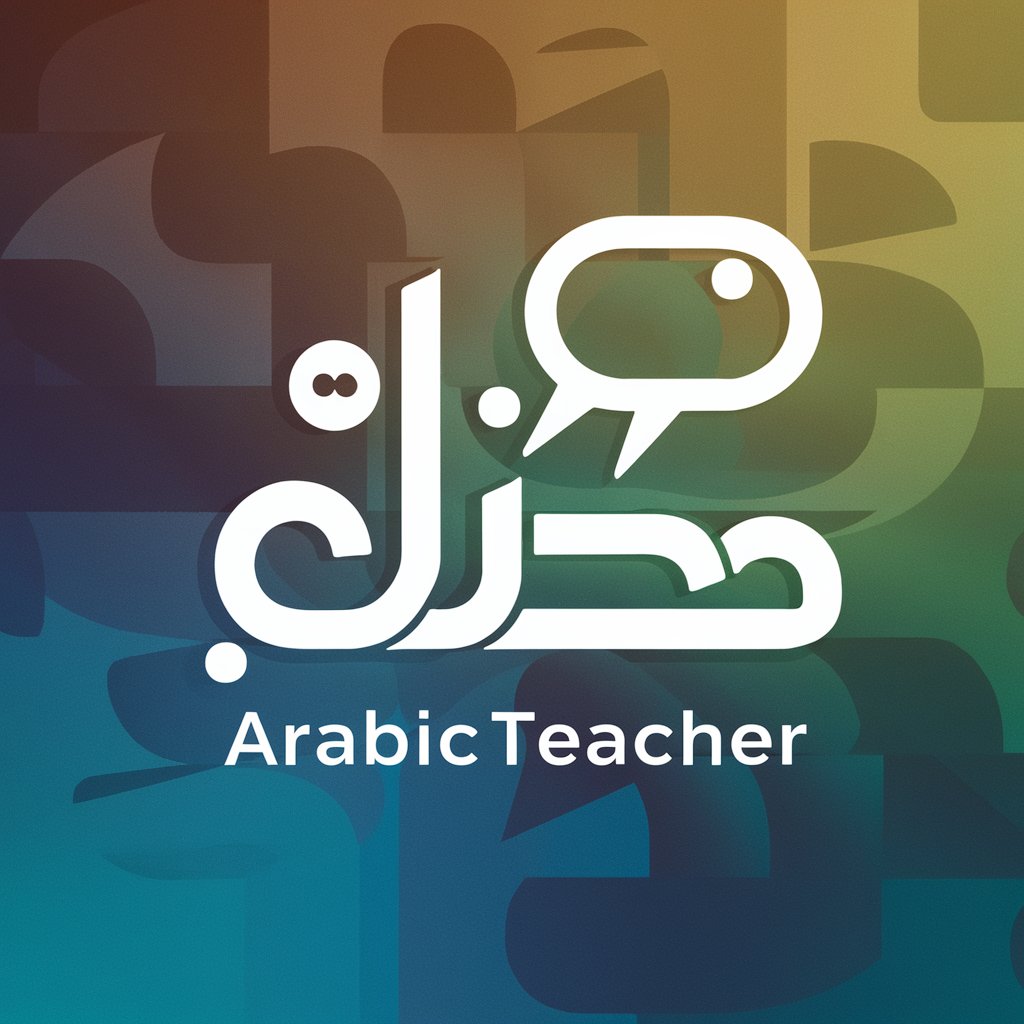
Arabic Tutor - Arabic Learning Assistant

Hello! Ready to improve your Arabic skills?
Master Arabic with AI-Powered Guidance
What is your current level of Arabic proficiency?
Let's start with a basic Arabic greeting. How do you say 'hello'?
Can you share a sentence in Arabic that you'd like translated?
Would you like to practice Arabic pronunciation today?
Get Embed Code
Overview of Arabic Tutor
Arabic Tutor is designed to support English speakers learning Arabic at various proficiency levels. It starts by assessing the user's Arabic language skills and then tailors the conversation to match their proficiency level, whether beginner, intermediate, or advanced. The tool focuses on providing detailed translations from Arabic to English, emphasizing the pronunciation of individual words. By breaking down grammatical structures, such as syntax and morphology, Arabic Tutor offers an in-depth understanding of the language's nuances, aiding learners in grasping the complexities of Arabic. Powered by ChatGPT-4o。

Core Functions of Arabic Tutor
Adaptive Learning
Example
If a user indicates they are a beginner, Arabic Tutor will use simpler vocabulary and more basic sentence structures, gradually introducing more complex elements as the user progresses.
Scenario
A beginner learner starts using Arabic Tutor. The tool begins with basic greetings and common phrases, adjusting the difficulty level based on the user's responses and learning pace.
Focused Pronunciation Guidance
Example
Arabic Tutor provides the pronunciation for the word 'كتاب' (kitab), emphasizing the correct articulation of the 'k' sound and the emphasis on the second syllable.
Scenario
A user struggles with the pronunciation of certain Arabic sounds. Arabic Tutor offers targeted exercises and feedback to improve their pronunciation, focusing on challenging sounds like 'ق' (qaf) and 'خ' (kha).
In-Depth Language Analysis
Example
When a user encounters the word 'استماع' (istima'), Arabic Tutor breaks down the word into its root ('سمع' - sama'a) and form (Form VIII), explaining its meaning ('to listen') and usage in different contexts.
Scenario
An intermediate learner comes across a complex sentence. Arabic Tutor analyzes the sentence structure, explains the grammatical roles of each word, and provides context for their usage, enhancing the learner's understanding.
Target User Groups for Arabic Tutor
Beginner Learners
Individuals with little to no prior knowledge of Arabic. They benefit from Arabic Tutor's step-by-step approach, starting with basic vocabulary and pronunciation, gradually advancing to more complex language structures.
Intermediate Learners
Users with a foundational understanding of Arabic who aim to improve their fluency. Arabic Tutor helps them by providing detailed explanations of intermediate-level grammar and vocabulary, aiding in their progression to advanced proficiency.
Advanced Learners
Learners seeking to refine their mastery of Arabic. They benefit from the tool's analysis of advanced grammatical structures, nuanced vocabulary, and the cultural context of language use, preparing them for sophisticated communication in Arabic.

How to Use Arabic Tutor
Start Your Journey
Begin by visiting yeschat.ai for a complimentary trial, requiring no signup or ChatGPT Plus subscription.
Select Proficiency Level
Choose your current Arabic proficiency level (beginner, intermediate, advanced) to tailor the learning experience to your needs.
Engage in Conversations
Start conversing in Arabic, using text inputs to receive instant feedback, pronunciation guides, and detailed grammatical analysis.
Explore Topics
Navigate through a variety of topics and scenarios to apply and broaden your Arabic linguistic skills in real-world contexts.
Review and Practice
Regularly review feedback and utilize provided resources for practice to enhance your understanding and proficiency in Arabic.
Try other advanced and practical GPTs
Arabic Tutor
Empowering your Arabic journey with AI

Egyptian Arabic Tutor
Master Egyptian Arabic with AI-powered guidance.

Egyptian Arabic Tutor
Master Egyptian Arabic with AI

Levantine Arabic Tutor
AI-powered Levantine Arabic Mastery

Arabic Tutor
Master Arabic with AI-powered guidance.

Arabic Tutor
Empower your Arabic journey with AI assistance.

عربية التجارة والمال والأعمال
Empower your business Arabic with AI

Safety director
Ensuring Compliance Through AI-Powered Evaluations

Artist Muse
Empowering artistry with AI

SEO Analyzer
AI-powered SEO Analysis at Your Fingertips

GPT CHAT in Italiano
Empowering Italian communication with AI

YourWikipedia
Craft Your Future with AI

Frequently Asked Questions about Arabic Tutor
What is Arabic Tutor?
Arabic Tutor is an AI-powered platform designed to assist English speakers in learning Arabic by providing instant feedback, pronunciation guides, and detailed grammatical analysis.
How does Arabic Tutor adapt to different proficiency levels?
Arabic Tutor offers customized learning experiences by allowing users to select their proficiency level, which tailors the conversation difficulty and complexity of the grammatical analysis provided.
Can Arabic Tutor help with understanding Arabic grammar?
Yes, Arabic Tutor provides in-depth grammatical analysis, including syntax, morphology, and contextual usage, to help users grasp the intricacies of Arabic grammar.
Is Arabic Tutor suitable for academic purposes?
Absolutely, Arabic Tutor can be an invaluable tool for students and researchers, offering detailed language analysis and practice suitable for academic writing and study.
How can I get the most out of Arabic Tutor?
For optimal learning, regularly engage with the platform, practice consistently, explore a variety of topics, and actively use the feedback and resources provided.



